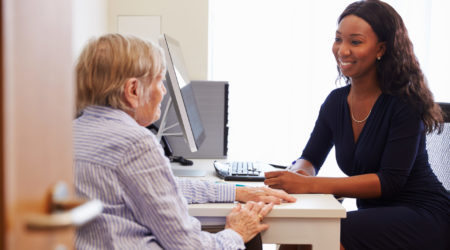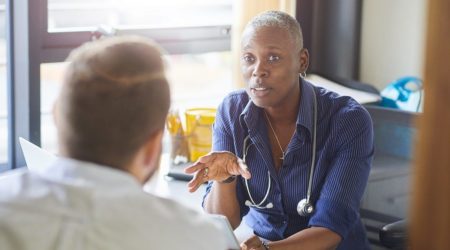Complementary therapies work alongside your medical treatments – don’t stop any cancer treatments. Always speak to your doctor before trying any complementary therapies, as some may affect your cancer treatment. And tell your complementary therapist about your cancer treatment.
There isn’t much evidence about complementary therapies, and they don’t work for everyone. But they may help you feel more in control of your symptom and side effects such as anxiety, pain or fatigue (extreme tiredness).
Your medical team can tell you what complementary therapies are available in your area. Hospitals, hospices and local charities may offer some complementary therapies for free, but this can often be limited. The Complementary & Natural Healthcare Council have a list of registered therapists.
We describe some common complementary therapies in this section. Find out as much as possible about the complementary therapy before you try it. Macmillan Cancer Support and the NHS website have more information about complementary therapies, including things to consider if you are thinking about using them.
Acupuncture
Acupuncture uses fine needles which are inserted just under the skin, in specific places in the body. Acupuncture needles are so fine that they shouldn’t hurt, although you may feel a tingle or dull ache as they go in.
There is some evidence that acupuncture helps with fatigue.
There is limited evidence that acupuncture helps with cancer pain. It may help when used alongside prescribed painkillers. Needles placed in the ear may also help people with nerve pain, but we need more research into this.
It may not be suitable if you are having chemotherapy. This is because there is a risk of infection from the needles. Check with your specialist nurse before having any acupuncture.
The British Acupuncture Council have more information and a list of qualified acupuncturists.
A type of acupuncture called acupressure may also help. This does not involve any needles. Instead, the therapist applies pressure to specific points on the body.
Massage
Some people find massage calming and relaxing. It may help to reduce pain and anxiety, and help you feel better generally. Many TENS machines have a massage setting.
Massage may help with fatigue, but we need more research into this. Some people find it calming and relaxing.
You should not have a massage in the area of your cancer. So avoid the tummy area and upper back. People with advanced cancer who have problems with bleeding should avoid deep tissue massage.
“ When my partner started to get referred pain into his shoulder, what he said helped was me massaging his shoulder. He would often fall asleep straight after as the pain subsided for a while.”
Reiki is a gentler type of massage where the therapist’s hands gently brush over the body, or a few inches above the body. This may be useful for people who can’t have regular massage.
Reflexology is a type of massage that involves putting pressure on parts of the hands or feet. This may help to relieve pain in other parts of the body.
Aromatherapy uses essential oils, such as lavender oil, to massage the body. If you are having treatment for cancer, check with your doctor before having aromatherapy. Look for a massage therapist with experience of working with people with cancer.
“ We used a specialist cancer masseur and it really helped, he slept very well after each session. Especially in the early stages.”
Relaxation therapies
Relaxation therapies, such as meditation, mindfulness or hypnotherapy, may help you to manage pain and fatigue. They may also help to reduce stress.
Meditation involves concentrating to calm your mind and relax your body. It can help you manage your thoughts and cope with your feelings. Your medical team can give you details of local meditation teachers.
Mindfulness uses breathing and meditation to change the way you think and feel about a situation. There is some evidence that it helps with fatigue. There are lots of books, websites and mobile phone apps that can help you try mindfulness, or you could ask your medical team about courses.
Hypnotherapy is a type of deep relaxation where the therapist puts you into a trance like state. They will then make suggestions to help you cope with symptoms like fatigue and pain. This can help you change the way you think about them. You can get details of hypnotherapists from the British Society of Clinical Hypnosis.
Visualisation
Visualisation or imagery can help to distract you from pain. A therapist will help you to think about pleasant or positive situations. For example, you may remember the sights and smells of a favourite place. Or you may imagine yourself feeling stronger. A therapist can also teach you how to try visualisation at home.
Art and music therapies
Art therapy helps you to express your feelings through art, such as painting or drawing. Music therapy involves using musical instruments or recorded music to express yourself. There isn’t much evidence to show that art or music therapy works, but they may help you cope with pain, and help to reduce anxiety.
“ Complementary therapy made my days and pain more bearable. It gave me a positive focus amidst a day packed with tests.”
Pet therapy
Pet therapy uses animals, usually dogs, which have been trained to be calm and comforting to people. Therapy dogs and their handlers usually visit people for ten to 15 minutes at a time. Pet therapy may be available in hospital, hospices or care homes. Some people find that pet therapy helps with their pain by reducing stress and improving their mood. Pets as Therapy has more information.
Virtual reality headsets
Some small studies have looked at how virtual reality headsets could support people with cancer. Using the headsets, people can imagine they are somewhere else – perhaps on a beach or in a forest. The aim is to help people to relax and feel less anxious. Researchers have tried giving people the headsets to wear during treatment in hospital.
Questions to ask your doctor or nurse
- Are there any complementary therapies available that might help me cope with my cancer?
- Can you give me details of any local therapists?
“One of the things my daughter absolutely loved was having her feet massaged with lavender oil and lovely smelling creams. This really seemed to help relax her and I think helped with easing pain and discomfort.”
Updated April 2022
Review date April 2025



